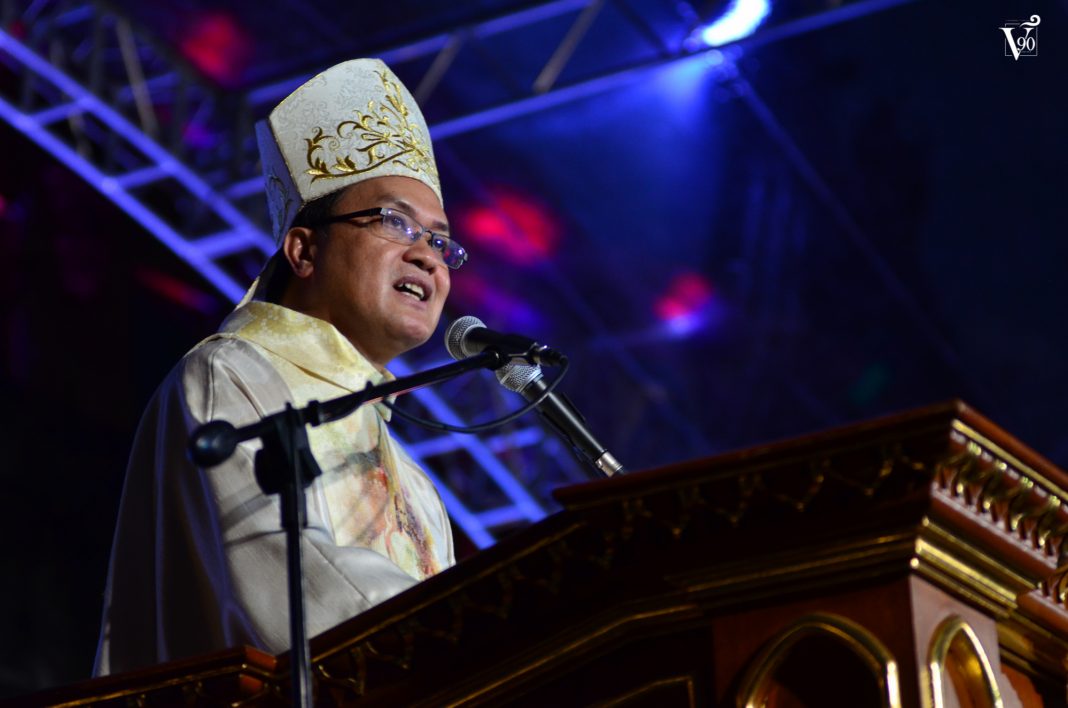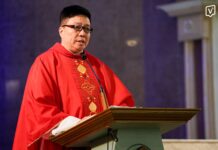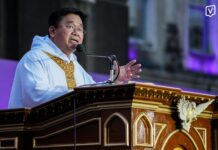THE CATHOLIC Bishops’ Conference of the Philippines (CBCP) has warned against the return of warrantless arrests under the Anti-Terrorism Act of 2020, saying it could be used by the government to crack down on dissent.
CBCP Acting President Pablo Virgilio David, in a pastoral letter dated July 16, noted that the Duterte government’s political tactics seemed to be in consonance with the Chinese government’s when the latter imposed the National Security Act on Hong Kong and told its citizens that “you have no reason to be afraid if you are not terrorists.”
“The return of ‘warrantless detention’ through this new law cannot but remind us of the initial moves in 1972 that eventually led to the fall of democracy and the rise of a dictatorial regime that terrorized the country for fourteen years,” the CBCP statement read.
The CBCP president expressed disbelief over the fast-tracked process of the terror bill despite the Covid-19 pandemic and opposition from various groups.
“The dissenting voices were strong but they remained unheeded [but] the political pressure from above seemed to weigh more heavily on our legislators than the voice from below,” the statement said.
David, the bishop of Caloocan, urged public officials to remain “objective and independent minded” to keep democracy alive in the country.
“We can only wish that there would be more of them [who] do as conscience dictates and do not allow themselves to be intimidated or prevented by political pressure from performing their constitutionally mandated duties,” David said.
He reminded the faithful about the recent attacks on the Church and press freedom, recalling that bishops, priests and religious, were among those who were falsely charged with inciting to sedition by the Philippine National Police.
In February, the Department of Justice dropped charges against four bishops including David and two priests who were accused of inciting to sedition in August 2019. Jesuit priest Fr. Albert Alejo and Fr. Flaviano Villanueva posted bail following their arrest last Feb. 15.
President Rodrigo Duterte’s chief legal adviser Salvador Panelo said the pastoral letter released by CBCP “appears” to have violated the separation of Church and state mandated by the constitution.
The statement, he said on July 22, was “the CBCP’s unequivocal attempt at influencing the Supreme Court to decide against the ATA (Anti-Terrorism Act 2020) in relation to the pending case before it.”
He said the Philippine government recognizes the clergy’s freedom of speech but the Church crossed the line when pressure and influence was put on a purely government process.
“It is unfair as undeniably their postulations intrinsically involve the moral obedience of its numerous followers of faith… with its strong persuasion, they are to dictate how the nation should run its earthly affairs,” Panelo said.
The CBCP pastoral letter also mentioned Myanmar Archbishop Charles Cardinal Maung Bo’s request to pray for Hong Kong following the passage of the National Security Act.
Cardinal Maung Bo, president of the Federation of Asian Bishops’ Conferences, said the Act threatens the basic freedom and human rights of the people of Hong Kong.
The Philippines’ Anti-Terrorism Law took effect last July 18.
It allows detention without judicial warrant of arrest for 14 days, with a possible extension of 10 days.
It also allows surveillance of up to 90 days and the designation of individuals and groups as terrorists by the Anti-Terrorism Council composed of Cabinet officials. Mariel Celine L. Serquiña and Dominic Eugene Aboy, O.P. with reports from Joselle Czarina S. de la Cruz












